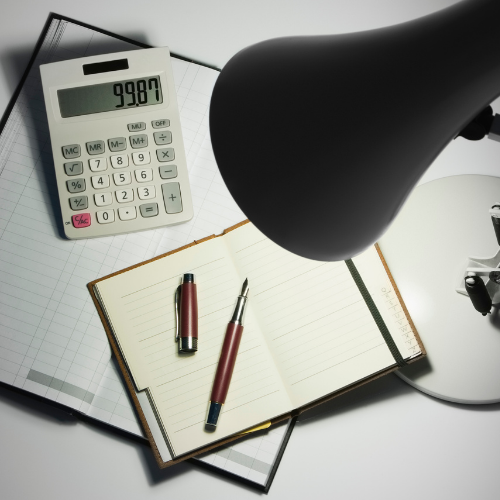#Collaborative post
Do you ever find money just seems to disappear and you’ve no idea what you bought? It helps with controlling money if you’re consciously trying not to just buy things because they’re there or in fashion, but little purchases can still creep up on your bank account with a big wallop.
Simple bookkeeping can really help you save money, and it’s not very hard or time-consuming.
A Really Simple System
With no more than a notebook and pen (or excel if you like computer work), it’s easy to keep good financial records. On a new page, have five columns:
- Date – the day you did the transaction.
- Item – for what you bought or where income came from, e.g. Wages.
- Income – amount that came in.
- Spent – amount you paid for the item.
- Balance – this is a running total of money available. You start this column off by looking at your latest bank statement or online banking app to find how much is currently in your account. Then you subtract or add the amount for each item as you go along.
Use Your Receipts
Instead of receipts going directly from bag to bin, they should have a half way stopping point where you take a moment to jot down their details into your notebook.
If shops don’t offer a receipt, ask for one even for the smallest purchases. It’s all the little things that really add up, even when you’re trying to be frugal. Receipts can then continue their journey into the bin unless you need them to prove a purchase or for business records.
Know When You Need Help
If your financials are really simple, bookkeeping like this is a very easy operation. You have one source of income, your job, and you have only that amount of money to keep track of.
It can get a bit more complicated if you have investments to track, inheritances, interest coming in or you’re in business and need more expert accounting for payroll or multiple income streams. The really simple system outlined above though, can work for straightforward sole trader businesses with just a bit of adaptation to cross reference receipts and invoices.
Accountants or bookkeepers can save your sanity when you’re tracking more than personal spending habits. They both do different jobs, with a bit of overlapping, but the main differences are:
- Bookkeepers – can help set up your system so an accountant can find the information they need, and will help maintain up to date records throughout the year. They’ll also help with invoices if you need them to.
- Accountants – among other things, they will dig out the information needed for your tax return, compile the return and submit it on your behalf. They can advise on expenses and other allowances and cut down your tax bill.
Saving Money with Your Records
When you have just a few weeks worth of records, you can quickly see where you’re spending money and spot areas where cutting back won’t hurt too much. Because you list each purchase, it’s easy to identify categories such as clothes, grocery shopping, petrol or eating out. You might find you’re spending a packet on fast food at lunch time when you tot it up over a month. Just a couple of pounds a day makes quite a difference over several weeks.
By identifying exactly what you’re spending money on, you can make informed decisions about whether to carry on or make some changes to save a bit more. It puts you in control, and that’s a very nice feeling.



